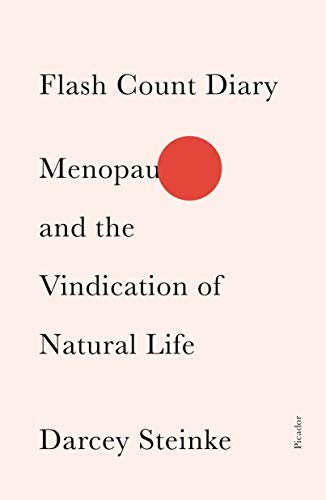Bookshelf: Midlife perspectives
According to her Twitter bio, Steinke is: Novelist. Essayist. Fanatic Reader. Arm Chair Theologian. Teacher. Princeton, Columbia,The New School & The American University of Paris. Born in 1962, she also suffered epic menopause symptoms during her “change”: relentless hot flashes, insomnia and depression. She lived to write about it in Flash Count Diary: Menopause and the Vindication of Natural Life, part history lesson, evolutionary perspective and feminist manifesto. Steinke writes that 17th century hot-flashing women were believed to be witches (really?!) and her surprise to learn that human females and female killer whales are the only creatures that go through menopause.
While some reviewers found it “depressing” (er, she admits menopause triggered depression,) we found it honest, raw and bittersweet – feelings that most of life’s major transitions trigger – but perhaps more so for transitions that are nearer to our end than our beginning. We certainly share the perspective of one of her author/reviewers, Samantha Hunt, author of The Dark Dark and Mr. Splitfoot:
“For what Darcey Steinke has just taught me about my own body—all of our bodies—I will love her eternally. After readings bits of Flash Count Diary aloud to my twelve-year-old, she confided in me, “I can’t wait for menopause.” This fearless and fiercely intelligent book needs to be read by every woman, man and child as it explores and explodes ideas about aging, desire, our wildness, and our wonder.”
Yes, yes and yes: we MUST teach our daughters, nieces, young friends, godchildren, students that menopause is another of life’s great and natural transitions that is made better by talking about it, sharing experiences and, ultimately, harnessing it for the power it can bring.
Quote we love:
At times I feel another body slipping out from my original one…This sensation is alienating but also oddly thrilling. For decades I’ve tried, mostly unsuccessfully, to get out of the way so the force of the universe could use me as a conduit. Only recently, with the onset of menopause and the breakdown of my former identity, do I finally feel I am making a little progress.”
—

